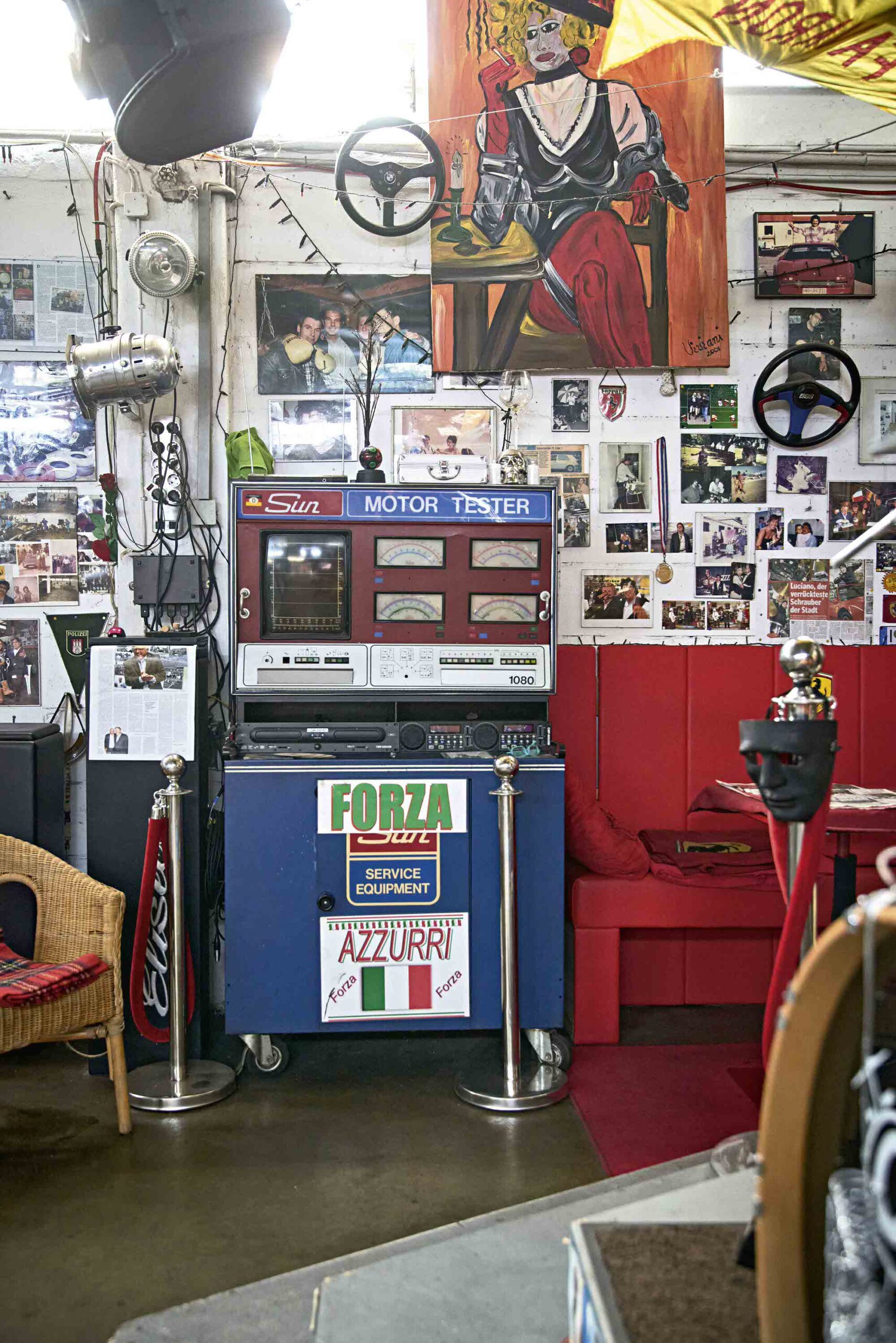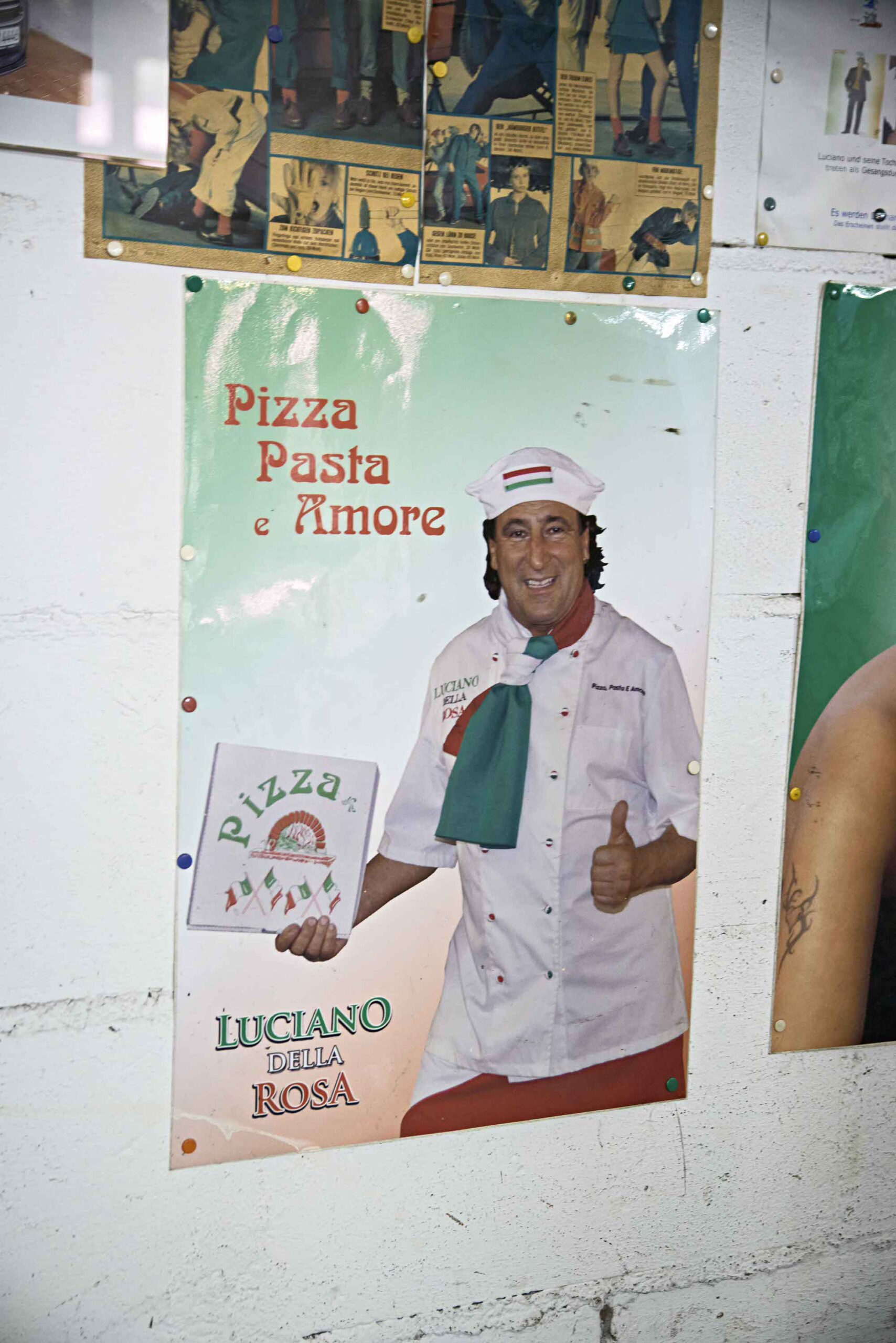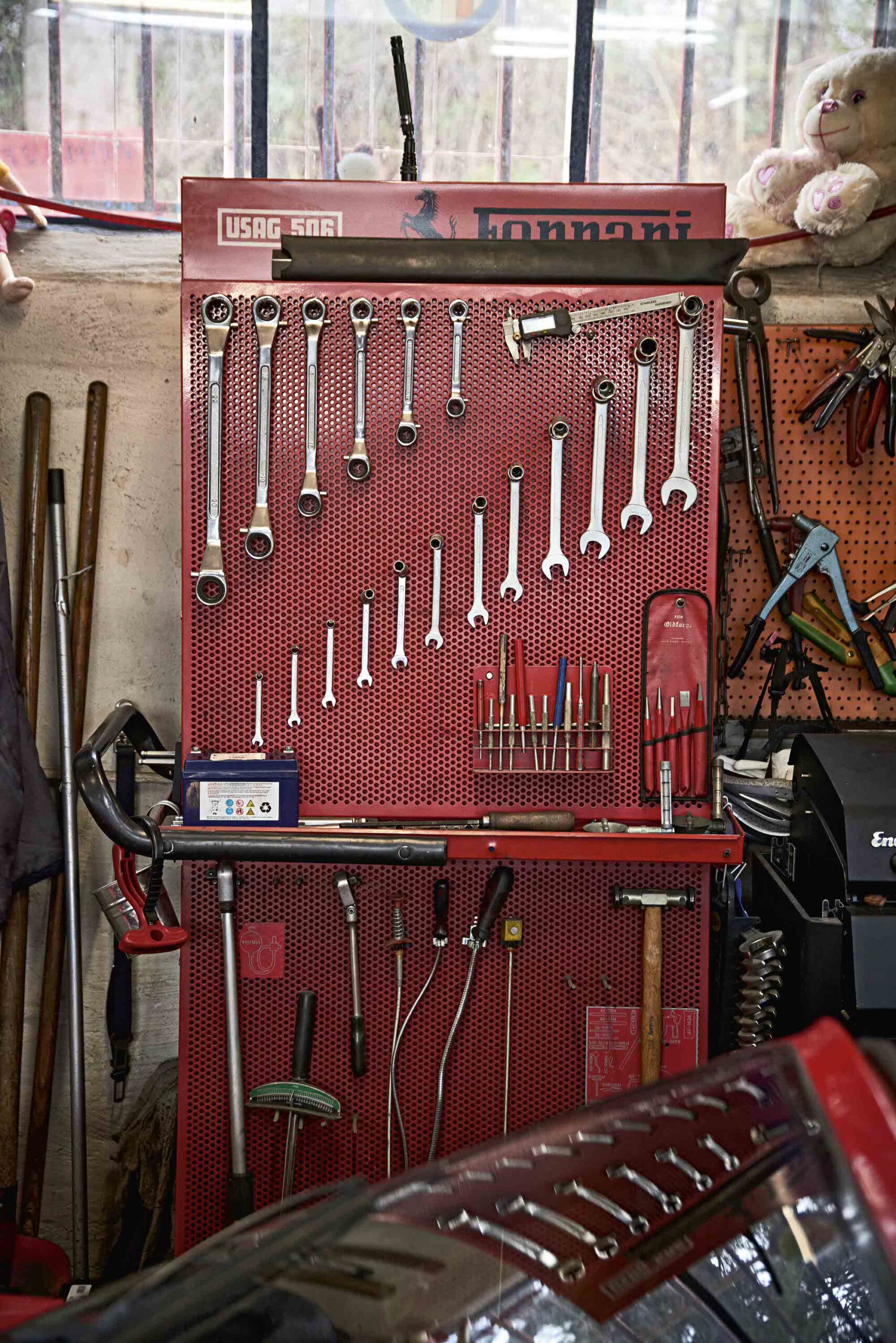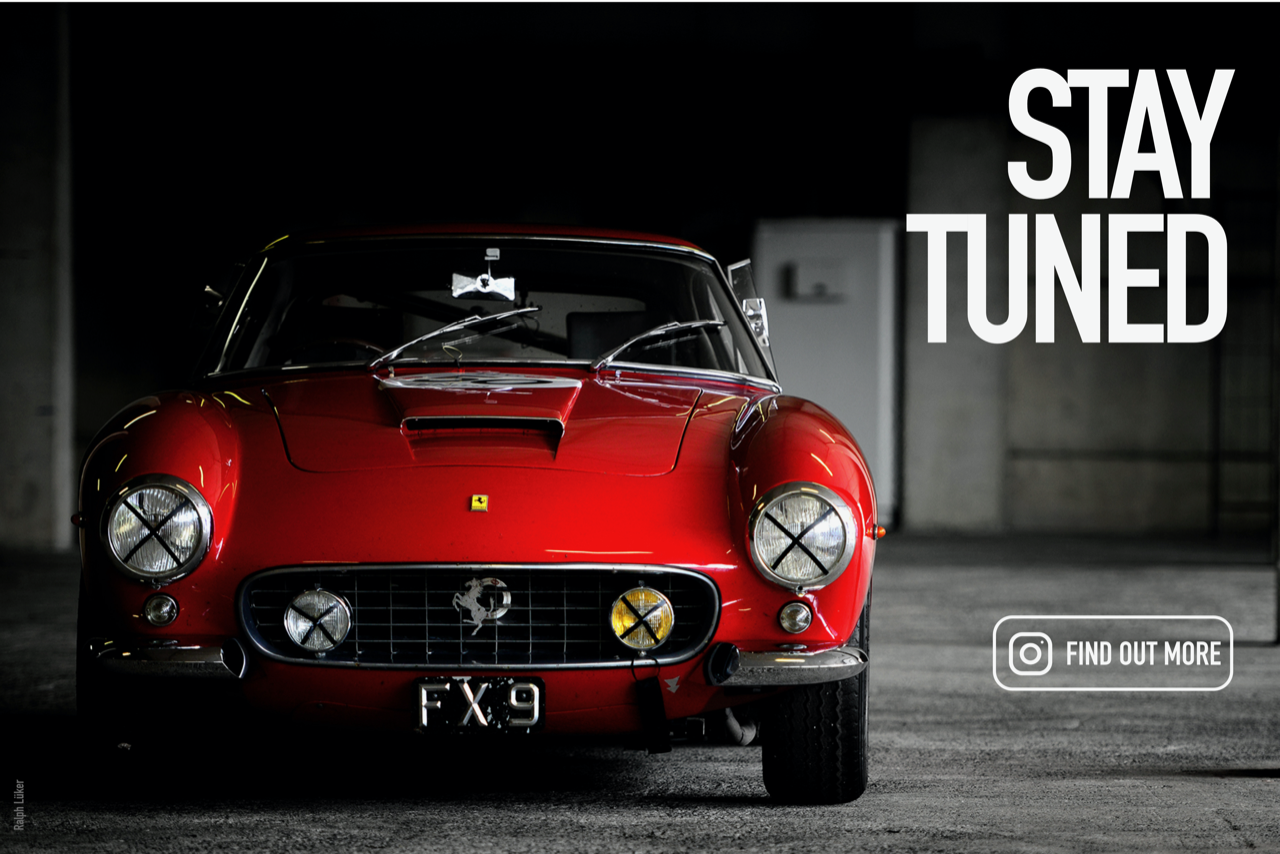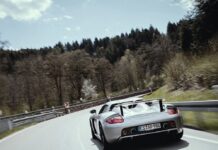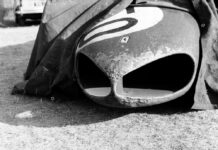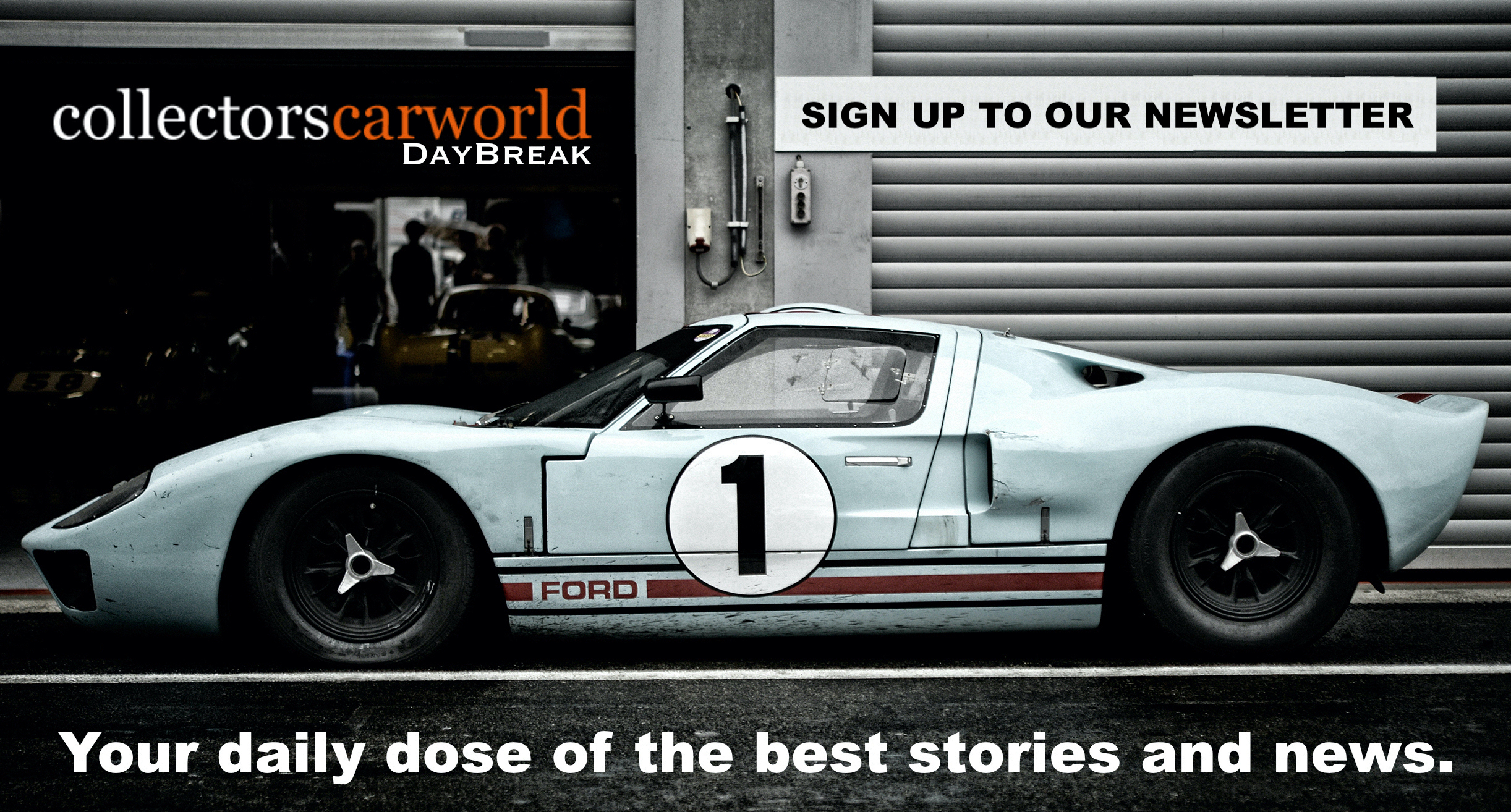Luciano Favaron has been tinkering with and tuning Italian supercars in his -workshop in northern Hamburg since the 1980s. When he’s not busy making music, that is.
The red-light regulars and showbiz stars who used to frequent the area have long since disappeared. But a whiff of those former glory days still hangs in the air.
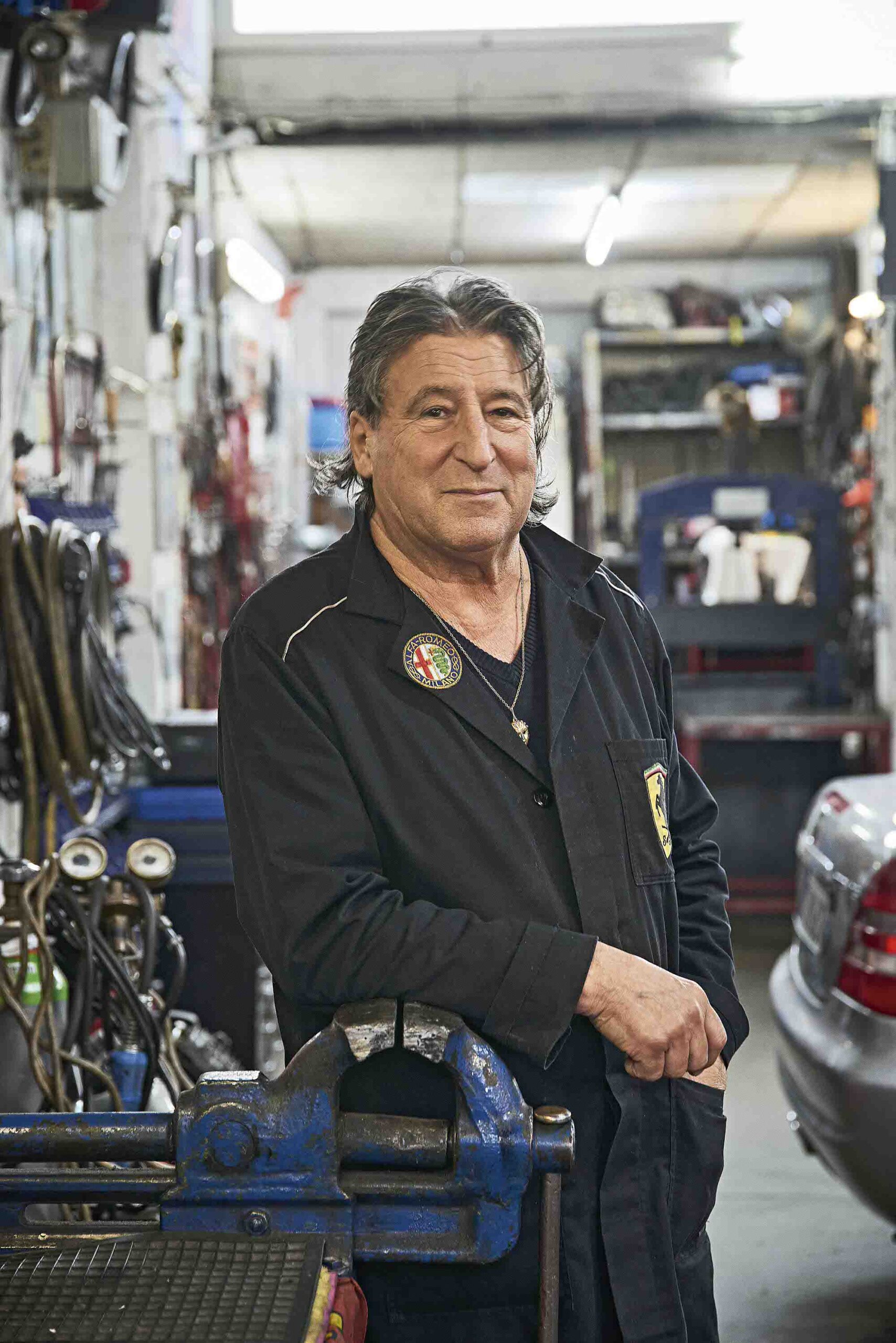
You only live once, so you might as well make the best of it.” Luciano Favaron beams like the rising sun over the Mediterranean as he says this.
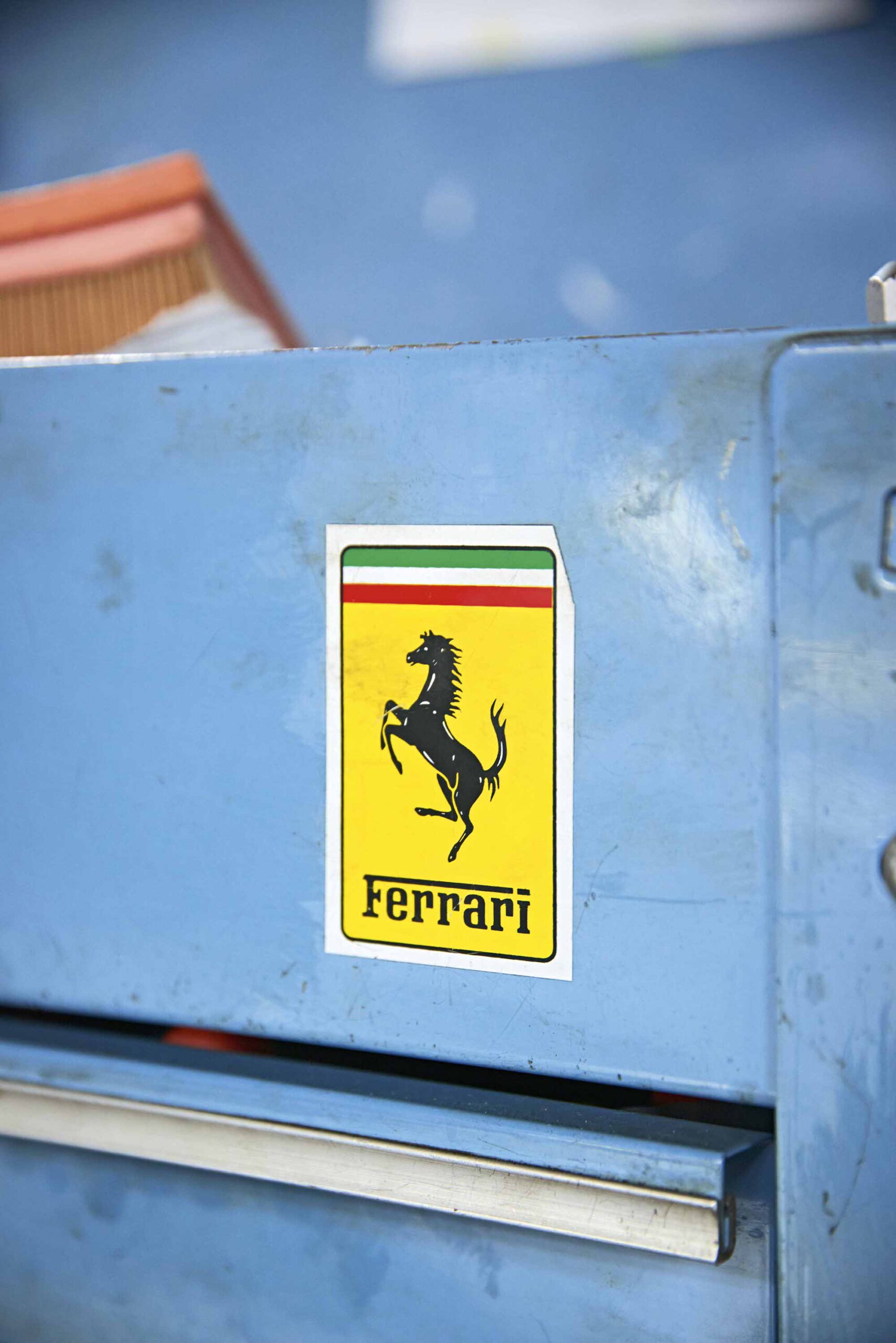 Then the Venice native opens the next bottle of Prosecco with a practiced hand. We’re not on the Adriatic coast here, but in a backyard workshop in Hamburg, in an alley behind the rather unflattering Nedderfeld auto mile in the northern city district of Lokstedt. In the hall of a low-rise building stands a 1980 Ferrari 308 GTBi (“I bought it for DM 7,000 at the time.”), next to it an Alfa Spider, in between an unadorned espresso machine on a small table, and opposite that a 1950 Fiat Topolino. Ferrari tools are neatly lined up on the walls, in the corner a drum kit sits enthroned on a small stage, guitars and Venetian masks hang from the ceiling, the fan heater roars, and Italo pop blares incessantly overhead. Photos cover every last bit of free space, among them F1 legends Michael Schumacher, Niki Lauda and Gerhard Berger, former soccer star Günter Netzer, legendary local pimp Handsome Klaus, German folk singer Heino and Italian actress Ornella Muti – just to name a few. Favaron also has several photos of television chef Steffen Henssler on his wall because he cooked with him on TV, and of comedian Alfons because his late-night show was recorded here. Everyone who is anyone has been to see Luciano, or “Luci”, as people call him, especially local luminaries, show business greats, footballers and boxers. He’s been working on Italian luxury cars here since the 1980s, though the occasional Rolls-Royce might find its way into his workshop as well. Favaron, who is seventy-four years old but looks more like he’s in his late fifties, doesn’t really need to work anymore. “But what would I do at home?” he asks, throwing his hands up in the air. “Have you eaten?” he then asks, before scurrying off to slice up some wild boar salami and parmesan.
Then the Venice native opens the next bottle of Prosecco with a practiced hand. We’re not on the Adriatic coast here, but in a backyard workshop in Hamburg, in an alley behind the rather unflattering Nedderfeld auto mile in the northern city district of Lokstedt. In the hall of a low-rise building stands a 1980 Ferrari 308 GTBi (“I bought it for DM 7,000 at the time.”), next to it an Alfa Spider, in between an unadorned espresso machine on a small table, and opposite that a 1950 Fiat Topolino. Ferrari tools are neatly lined up on the walls, in the corner a drum kit sits enthroned on a small stage, guitars and Venetian masks hang from the ceiling, the fan heater roars, and Italo pop blares incessantly overhead. Photos cover every last bit of free space, among them F1 legends Michael Schumacher, Niki Lauda and Gerhard Berger, former soccer star Günter Netzer, legendary local pimp Handsome Klaus, German folk singer Heino and Italian actress Ornella Muti – just to name a few. Favaron also has several photos of television chef Steffen Henssler on his wall because he cooked with him on TV, and of comedian Alfons because his late-night show was recorded here. Everyone who is anyone has been to see Luciano, or “Luci”, as people call him, especially local luminaries, show business greats, footballers and boxers. He’s been working on Italian luxury cars here since the 1980s, though the occasional Rolls-Royce might find its way into his workshop as well. Favaron, who is seventy-four years old but looks more like he’s in his late fifties, doesn’t really need to work anymore. “But what would I do at home?” he asks, throwing his hands up in the air. “Have you eaten?” he then asks, before scurrying off to slice up some wild boar salami and parmesan.
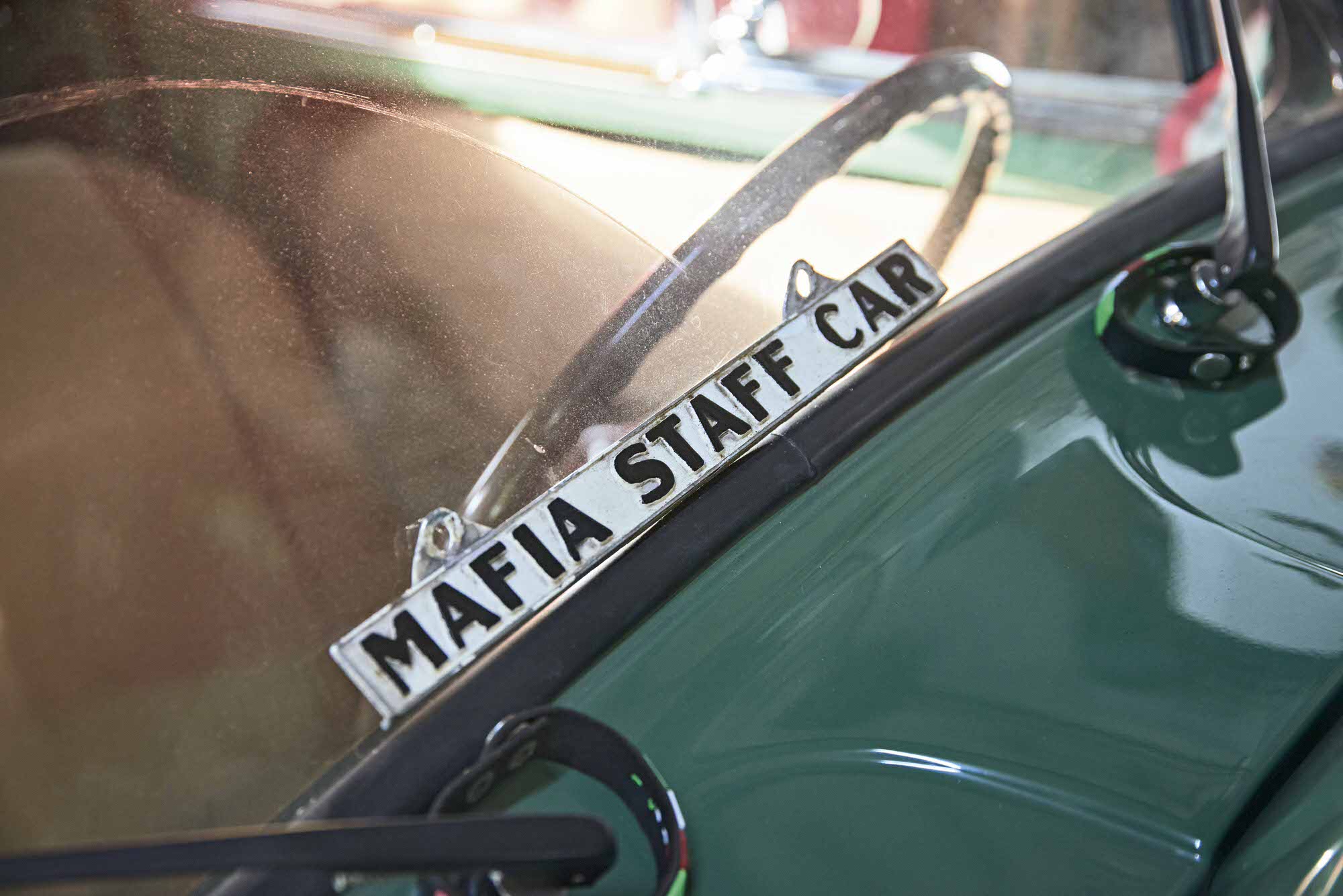
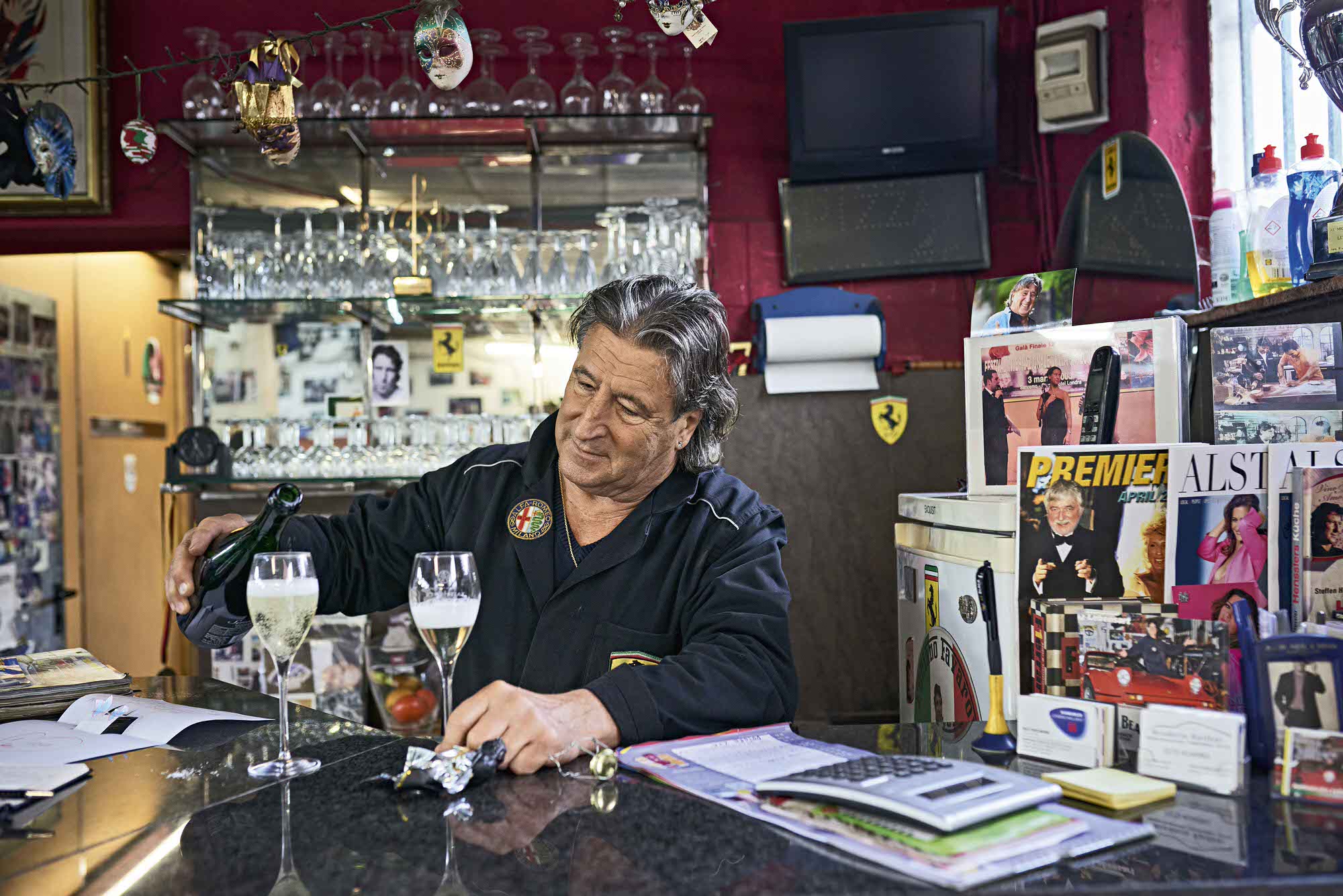
Favaron was raised by his grandparents on a farm in rural Padua under extremely humble conditions. He learned the coachbuilding trade at Ferrari Mestre, near Venice, and dreamed of becoming a musician. “A man without dreams has missed out on life,” says Favaron, adding that this also applies to women, of course. He may be old school, but he’s not from yesterday. In any case, “visions”, as he calls them, are important to him. In 1969 he grabbed his guitar and wanted to travel to London – but only made it as far as Hamburg Central Station. He still shudderingly remembers the stale smell of the cold deep-frying fat that wafted over the tracks back then. But he stayed. Not only because of the many bridges in Hamburg that reminded him of his home, but also because he fell in love. He is still married to Monika today, and photos of the two fill the workshop. A picture of their wedding can be found, of all places, on a pillar next to the lifting platform where quite a few items of female clothing are hanging about. Some are trimmed with delicate lace, others are covered with rivets and leather. How they ended up here is not immediately apparent, only that there were once many more of them and that a ride in Favaron’s Ferrari had something to do with it. What Monika thinks of all this? “I was always faithful!” Luciano exclaims. For those innocently upturned eyes, he should get an award.
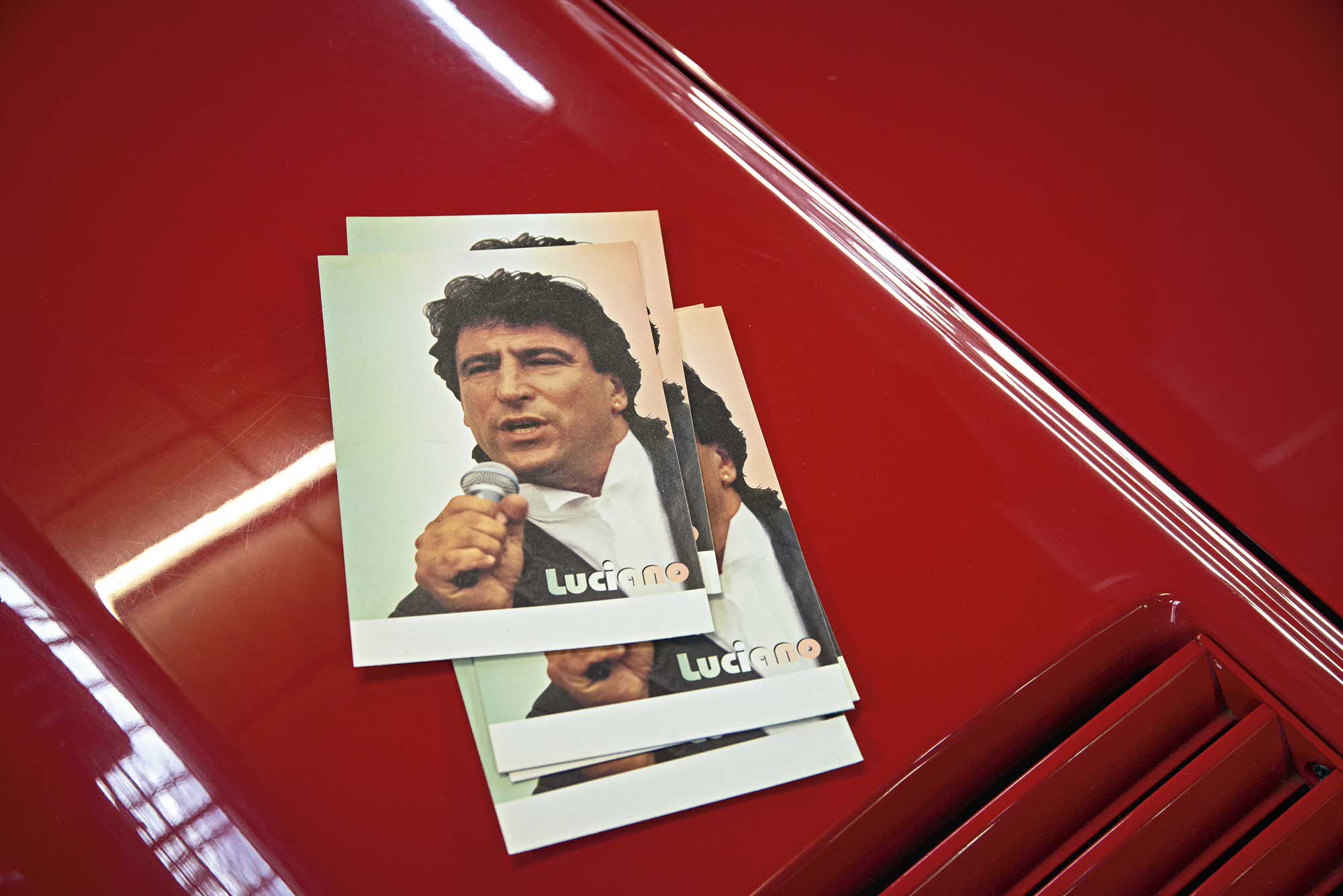
Favaron’s pronounced sense of showmanship led him to record albums with titles like Pizza, Pasta e Amore under the name Luciano Della Rosa and to go on tour with German musicians like Frank Zander and Bernd Clüver. When his music career slowed down, Favaron started working in a car repair shop where his brother Paolo, who had also come to Hamburg, was already employed. In the mid-eighties, the brothers set up their own business in the garage in Lokstedt. His success is due in part to the fact that Favaron was pretty much the only person in Hamburg who knew his way around Italian supercars. “They also call me Mr. Ferrari,” says Favaron, raising his chin and tucking his hands into his smock. Not to mention that the gentlemen from the red-light district didn’t necessarily have the patience to let the V12 of their Ferrari or Lamborghini warm up enough – and before you knew it, they were back in Favaron’s shop. In the end, the entertainment industry’s favorite Italian mechanic simply did did an excellent job. To this day, he still has a penchant for meticulousness. Favaron: “First I polish the car, then I repair it.” When no one is looking, he picks tiny bread crumbs off the red blanket on the small table in the corner.
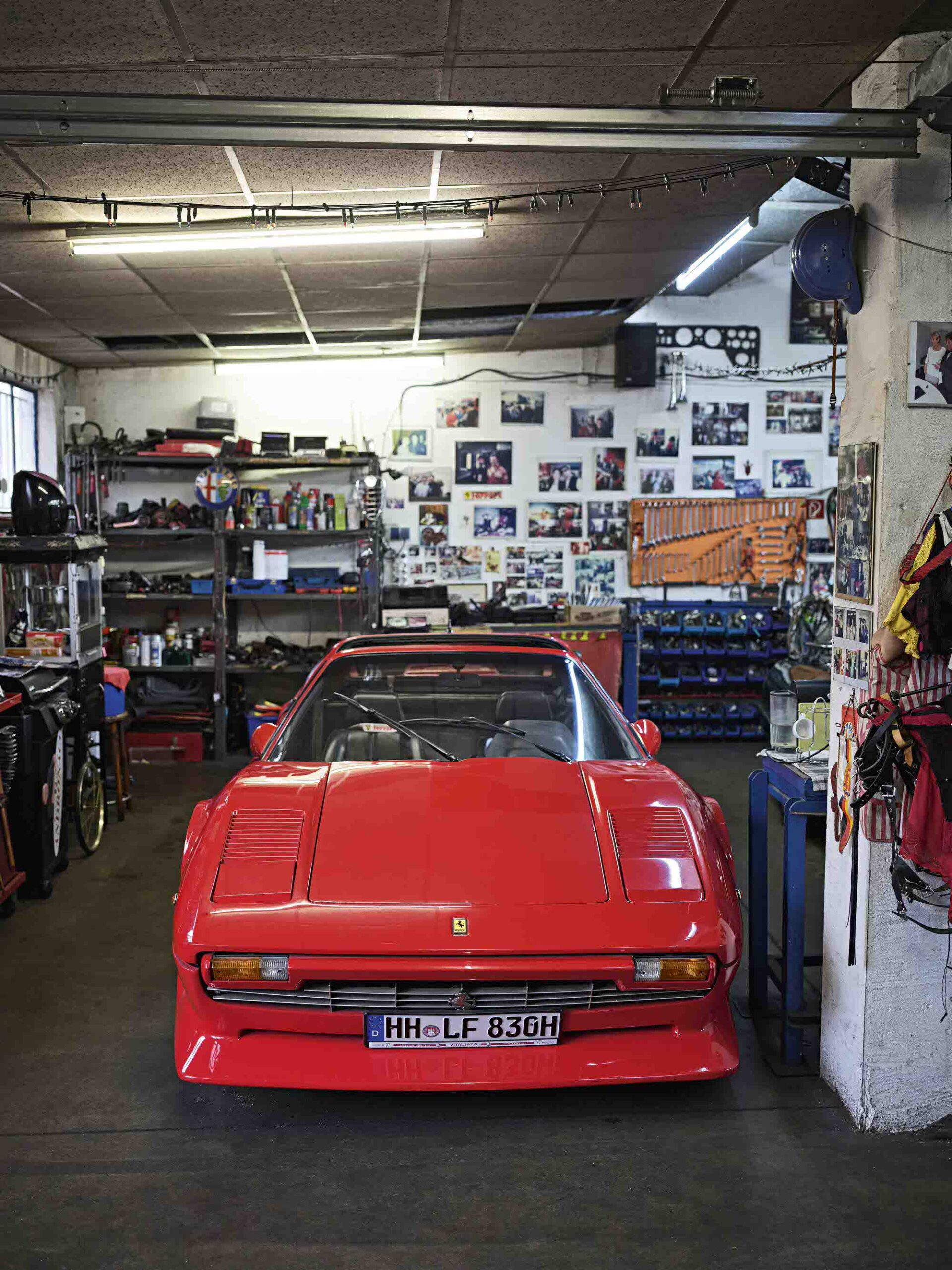
“Luci is more German than the Germans,” says Klaus Ottens, who dropped by for a drink that afternoon. “The Great White Shark”, as he used to be called, played for FC St. Pauli from 1988 to 1993. At some point during this time, he also ended up at Luciano’s, along with many other players from Hamburg’s two soccer clubs. “Harry Bähr, who had the number 01 at HSV, was the only person who was ever allowed to smoke in here,” recalls Ottens, before launching into the next story from the old days.
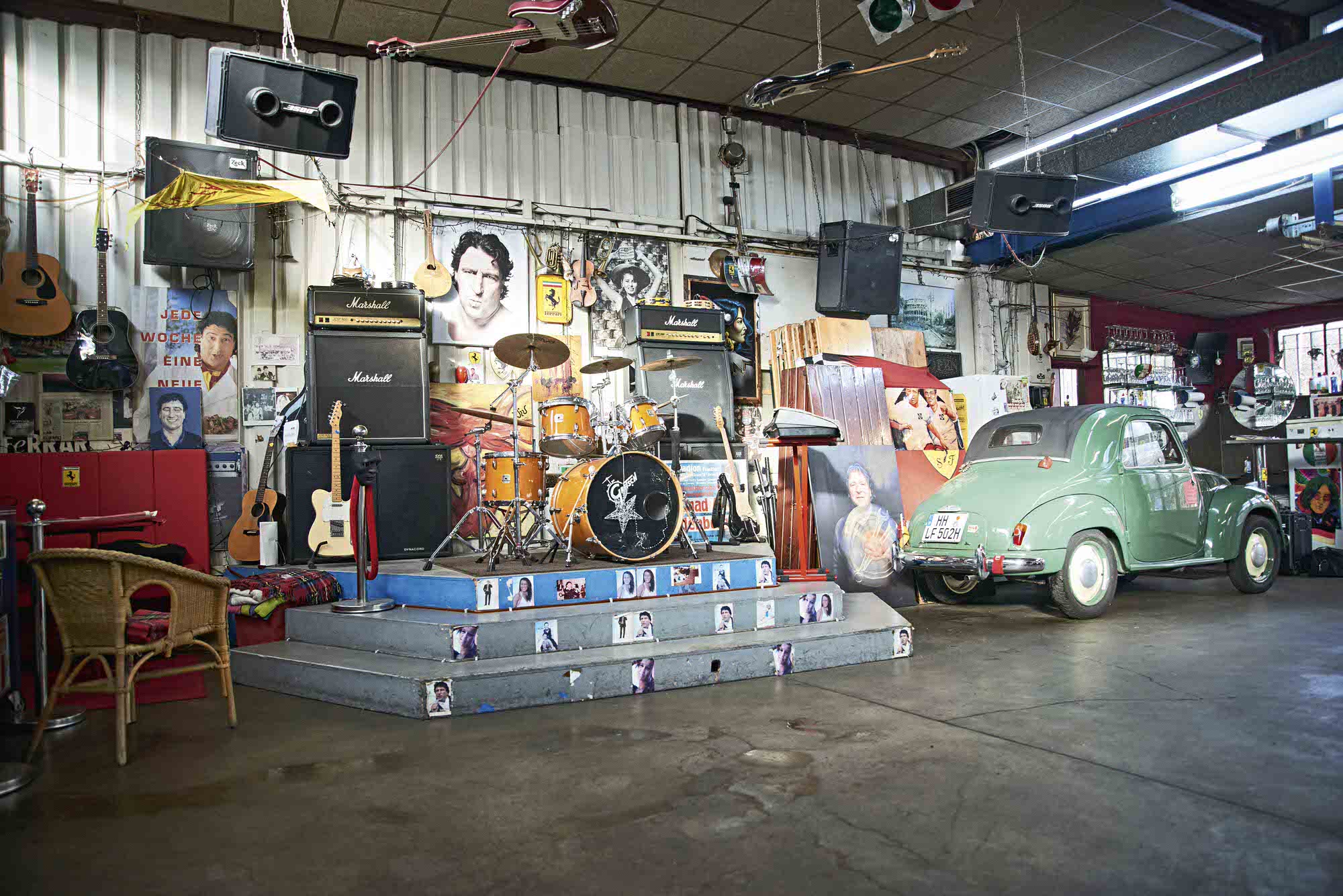
It’s not always a happy story, with plotlines including players who couldn’t cope when their time in the limelight was over, or the tragedy of “Handsome Klaus” from the Reeperbahn, who stopped by even after he had to sell his Countach, his Mercedes convertible and his Silver Shadow, who washed his own espresso cups and said, “Luci, you have it so nice here.” Favaron is still irritated at how everyone who had turned their backs on Klaus Barkowsky when he ran out of money showed up at his funeral. “Criminals, every last one of them!” he says. Asked about the fact that Barkowsky and his ilk weren’t exactly law-abiding citizens themselves, Favaron takes it all in his stride: “I’m a criminal too!” he exclaims, grinning from ear to ear.
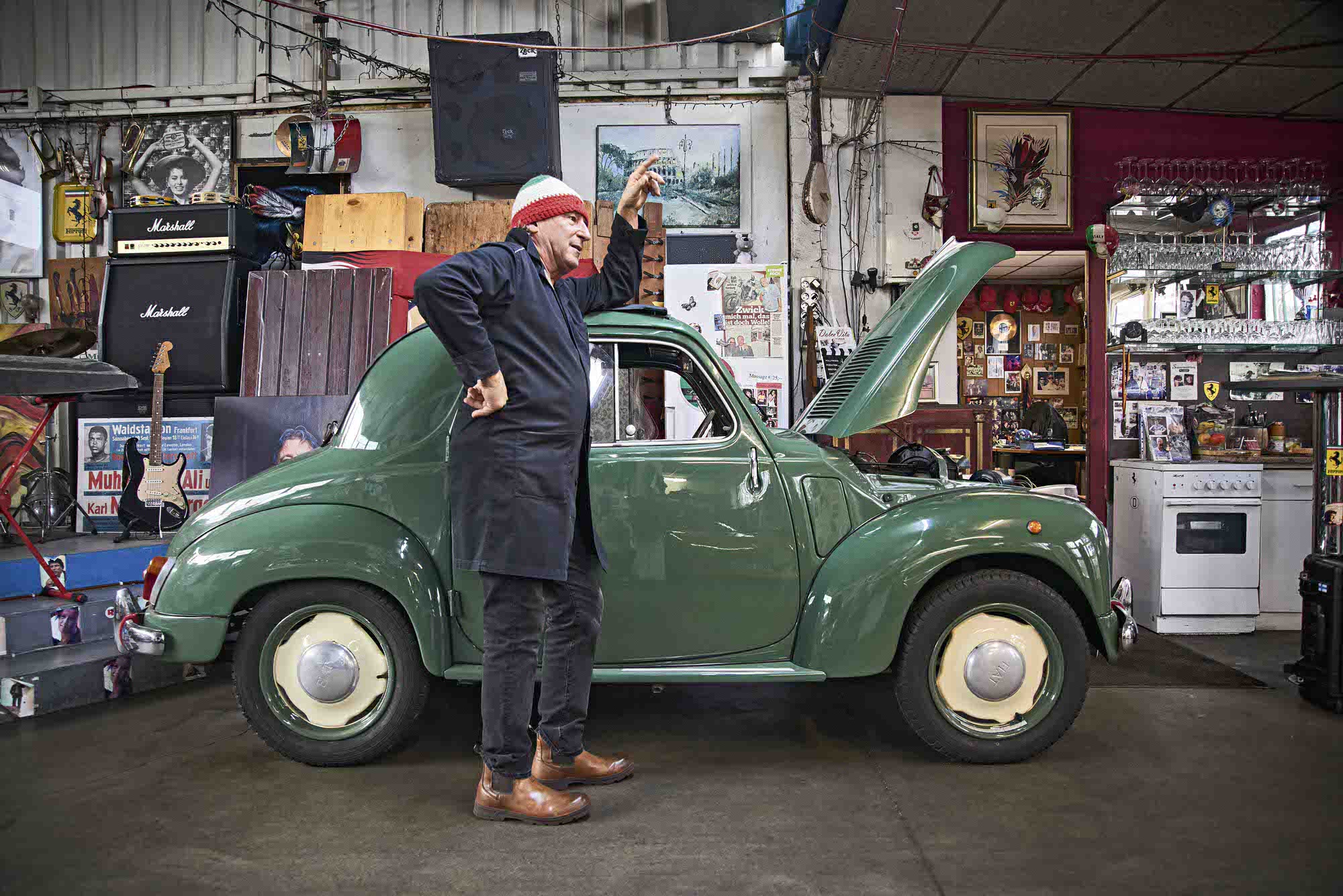
How you interpret this remark is up to you. That’s what’s so special about this place: there are always more truths here than guests. Favaron takes care not only of valuable (and meanwhile no longer so expensive) vehicles but also speaks to the Germans’ eternal love for all things Italian – and for a bygone era. The golden eighties, when money was no object, sports cars were still racy, and the world seemed a more simple place. Though maybe it still is – at least here, at this workshop. “My nonno always said, ‘When you’re happy, the whole world is happy,’” says Favaron, before he raises his glass with the words, “Viva la vita!”
Text: Wiebke Brauer
Photos: Michael Nehrmann
rampstyle #34 – On Any Sunday
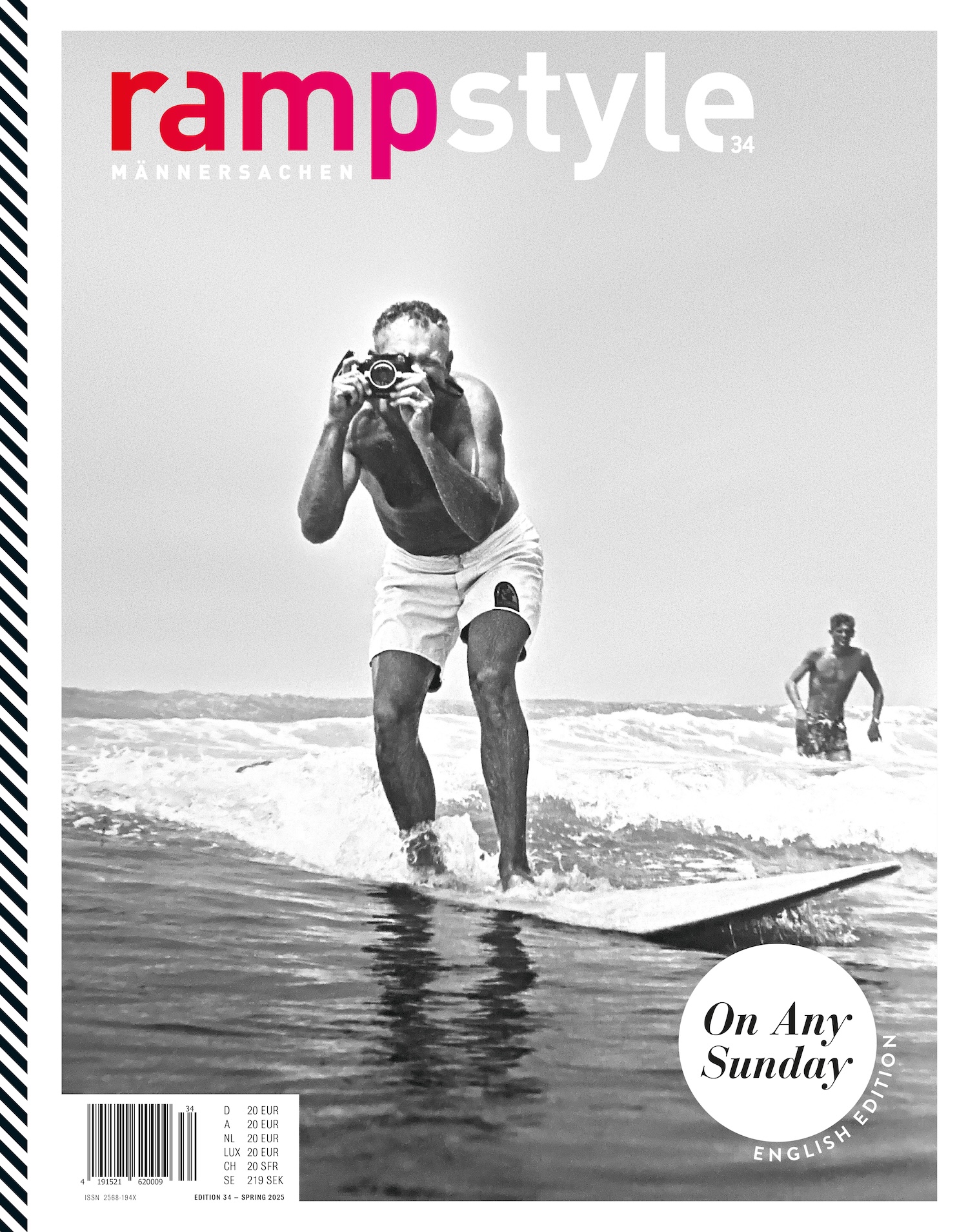
Steve McQueen just wanted to ride a motorcycle in Bruce Brown’s “On Any Sunday”. And that’s exactly what his 1971 classic movie is all about. “On Any Sunday” is more than just a movie – it reminds us that freedom is often just one turn away – and that sometimes all it takes is one thing: the courage to ride. Find out more

